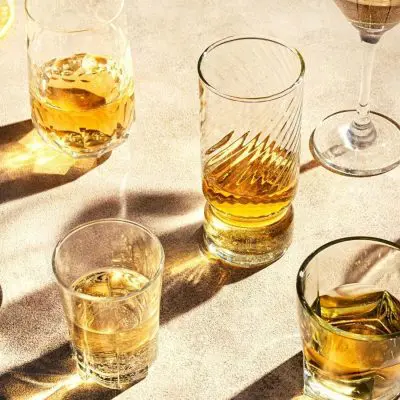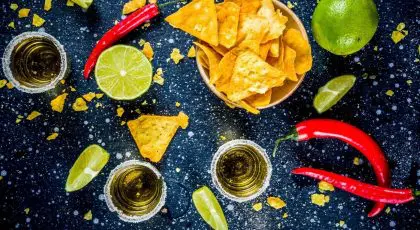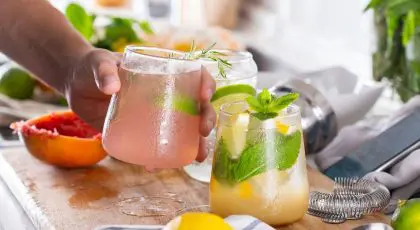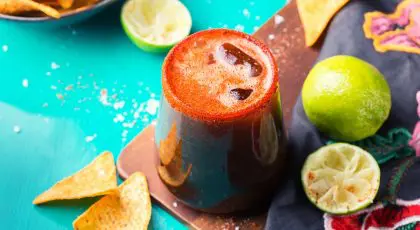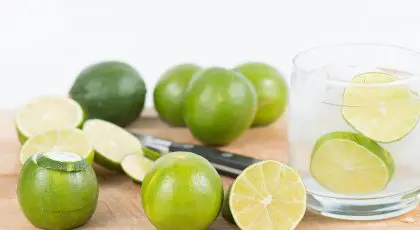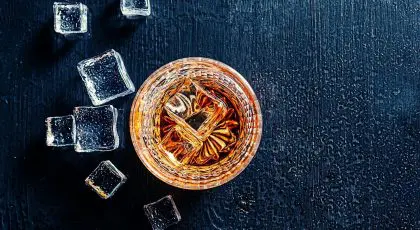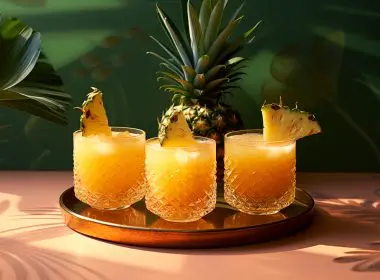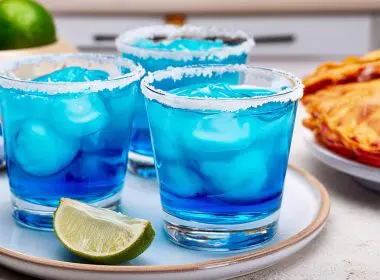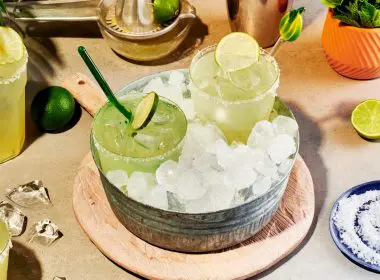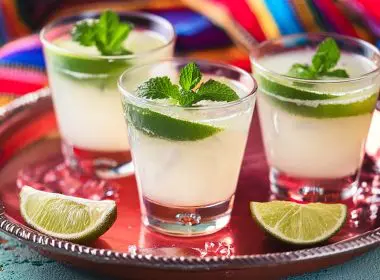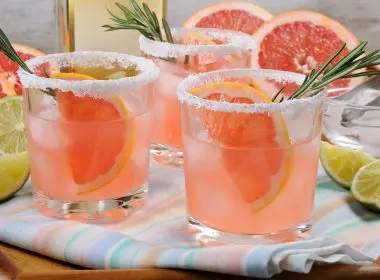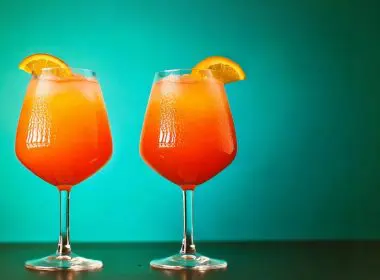The Difference Between Mezcal and Tequila
Jump to:
Tequila and mezcal often get mixed up and a lot of people aren’t always sure which to use. While both come from agave, their origins, production methods, and flavour profiles set them apart in a big way. In this guide, we break it all down—from how mezcal and tequila are made to the best cocktails to let each spirit shine.
Mezcal vs. tequila: Agave types & ingredients
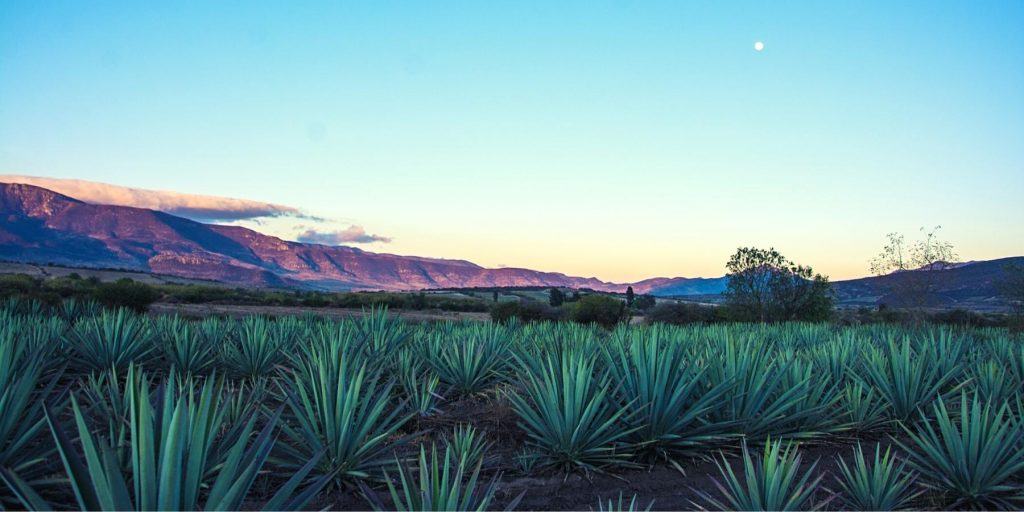
When you sip on mezcal vs. tequila, you’re tasting two distinct expressions of Mexico’s agave heritage. Tequila, made exclusively from Blue Weber Agave, has a naturally sweeter profile, while mezcal can be crafted from over 40 agave varieties, each contributing to a more complex, layered flavor. This wide range of plants gives mezcal its earthy, smoky, and sometimes even fruity depth.
Take Espadín (Agave Angustifolia), for instance. It’s the workhorse of the mezcal world, producing around 80% of all mezcal in Mexico. Its naturally high sugar content ensures a generous yield, resulting in a spirit that’s slightly sweet, with earthy notes of honey and sweet potato that linger on your palate.
Then there’s the Mexicano (Agave Rhodacantha)—a prized rarity. This variety delivers a mezcal that’s smooth, fruity, and earthy, with just a whisper of anise. It’s a favourite among aficionados who savour its complexity.
Now, imagine a towering agave plant, stretching over 8 feet tall and weighing more than 450 pounds. That’s Arroqueño (Agave Americana), an agave giant that produces a less sweet, yet deeply herbal and spicy mezcal. Each plant can yield up to 30 bottles, making it a treasure for mezcal makers.
Other varieties, like Karwinskii (Agave Karwinskii) and Tepeztate (Agave marmorata), tell their own tales. Karwinskii, with its hardwood-like piñas, creates mezcal with flavours as varied as roasted vegetables, herbs, and even peanuts. Tepeztate, on the other hand, takes patience—it matures over decades, resulting in mezcal with earthy aromas and tropical fruit undertones.
You might also like: 14 Best Drinks to Mix with Tequila in 2023
Location of production
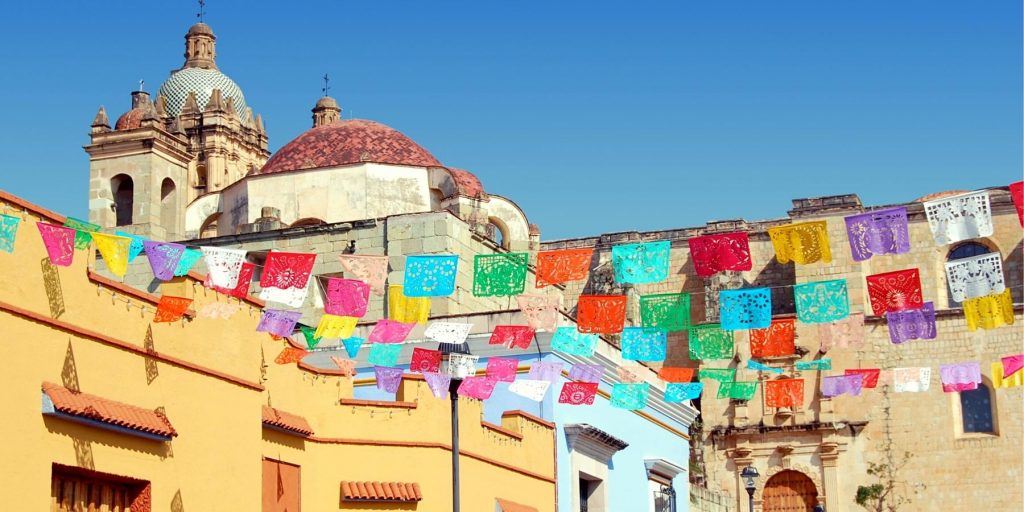
Tequila may be synonymous with Jalisco, but mezcal tells a broader story of Mexico’s rich regional traditions. Tequila is primarily produced in five regions: Jalisco, Tamaulipas, Michoacán, Nayarit, and Guanajuato. Jalisco, with its volcanic soil and perfect growing conditions, is the birthplace of blue Weber agave and the epicentre of tequila production.
Mezcal, however, spans a much larger map. While Oaxaca is the heart of mezcal production, accounting for 85% of the country’s output, other regions like Durango, Guerrero, and Zacatecas contribute their own unique styles and flavours. Each region brings its distinct terroir, influencing the taste and character of the mezcal produced there.
Think of it this way: tequila is like a classic novel from a single author, while mezcal is an anthology, with each region contributing its own compelling chapter.
Quick summary
Tequila is primarily produced in five regions:
- Jalisco (the heart of production)
- Tamaulipas
- Michoacán
- Nayarit
- Guanajuato
Mezcal is produced across nine recognised regions, with Oaxaca leading at 85% of total production. Other key areas include:
- Durango
- Guerrero
- Zacatecas
- San Luis Potosí
- Puebla
- Morelos
Now Trending: Easy Mezcal Cocktails for Agave Lovers
Method of cooking
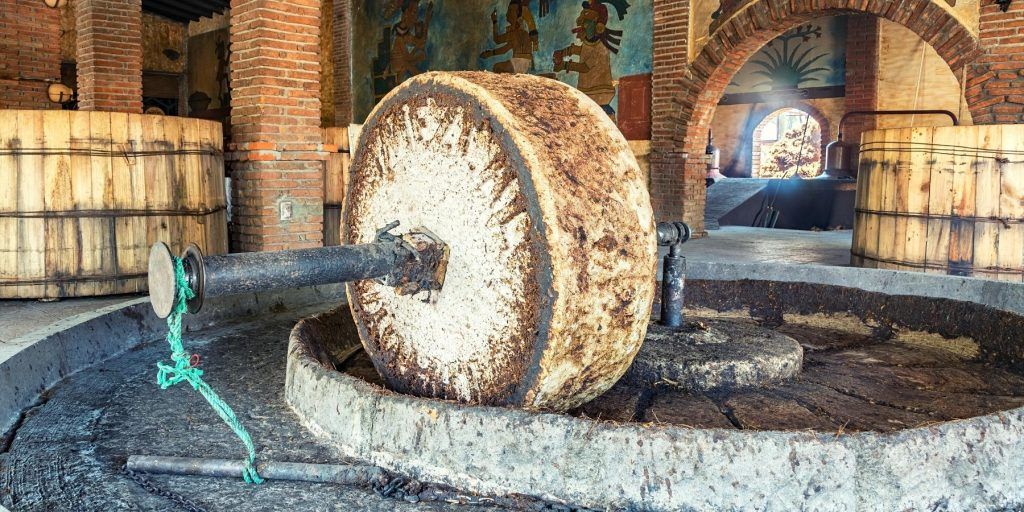
The way agave is cooked is where the journey of tequila and mezcal takes a dramatic turn. For tequila, the process is clean and efficient. The agave piñas are steamed in above-ground ovens, preserving the plant’s natural sweetness and creating a crisp, refined flavour.
Mezcal, however, embraces tradition with a touch of fire. The piñas are roasted in underground fire pit ovens, a method that dates back centuries. This labour-intensive process infuses the agave with an earthy depth that defines mezcal’s flavour. It’s a smoky whisper of history, where the flames meet the earth to create something extraordinary.
Both methods use tahonas—stone mills made from volcanic rock, powered by humans or animals—to crush the cooked piñas and extract their juices. This ancient technique ensures that every drop carries the essence of the agave.
Why is mezcal smoky?
Mezcal’s signature smokiness comes from its traditional roasting method, which is similar to barbecue-style slow-cooking. Agave piñas are buried in underground fire pit ovens, where it roasts over hot stones for several days. This allows the smoky, earthy flavours to seep deep into the agave, creating the bold, complex taste that sets mezcal apart from tequila’s cleaner, sweeter profile.
Learn more: The Best Tequilas for Sipping (Smooth, Flavourful & Worth Savouring)
Method of distillation
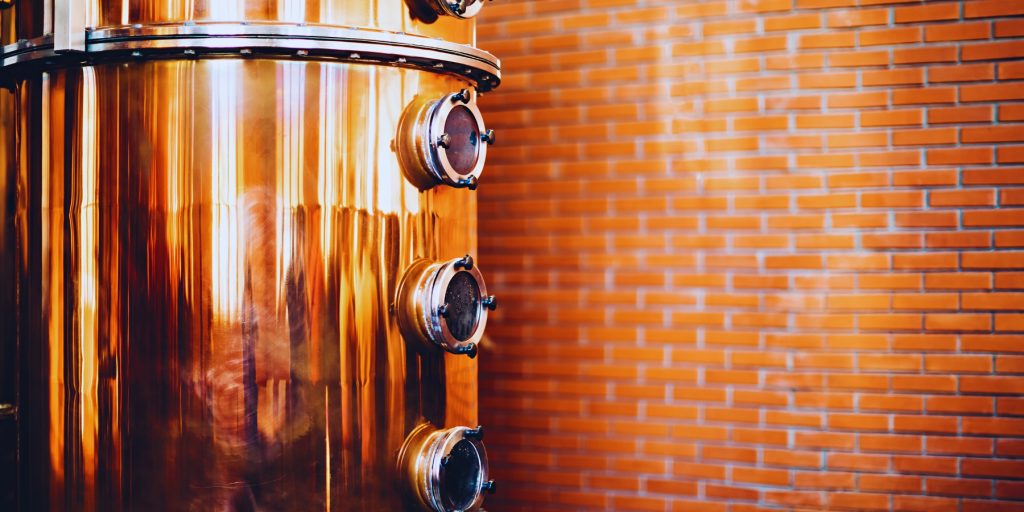
Distillation is where mezcal and tequila further carve out their identities. Tequila is distilled in copper pots, sometimes twice or even three times, to achieve a smooth, clean profile that highlights the blue Weber agave’s natural sweetness.
Mezcal, on the other hand, leans into its roots—literally. Many mezcal producers use clay pots for distillation, a method that dates back generations. This rustic approach imparts an earthy complexity to mezcal, making it a spirit that feels deeply connected to the land.
While tequila aims for a polished, crowd-pleasing finish, mezcal embraces its artisanal soul, offering a more raw and nuanced experience in every sip.
Tequila: Distilled twice or three times in copper pot stills = smoother, refined flavour
Mezcal: Often distilled in clay pot stills = earthy, robust, and complex taste
Salud! Your Guide to the Best Tequila for Margaritas
Top tips from Tris

Still keen to dive deeper? Tristram Fini, a seasoned mixologist and renowned tequila expert from the Campari Academy UK, has shared a few valuable tips for folks who want to understand more about mezcal vs tequila:
How traditional agave cooking methods influence the flavour of mezcal
The traditional method of cooking mezcal involves placing the agave underneath the earth with volcanic rocks, wet Hessian sacks, and then covering it all up with dirt. This process creates that distinctive smoky characteristic you get in mezcal.
Both tequila and mezcal need to be roasted to make the sugars available for fermentation, which helps unlock the fructans into simpler sugars. We’re talking about fructose and glucose here, which are crucial for getting the fermentation process rolling. But because mezcal is cooked this way, it ends up with that beautifully smoky flavour that you just won’t find in tequila.
Regional variations in mezcal production
There are three main types of mezcal, each bringing something unique to the table:
- Mezcal industrial: This type is produced similarly to tequila and often has a milder flavour. It’s great if you’re looking for something easy to drink, but it might lack some of the depth you find in other mezcals.
- Artisanal mezcal: This is what you’ll most commonly see on bottles around the world. Artisanal mezcal is made using either brick ovens or the traditional method of cooking agave underground. It typically involves double pot distillation and has a richer flavour profile.
- Ancestral mezcal: This type sticks to traditional methods, often made in wood or clay stills. It tends to be quite intense, packing in a lot of unique flavours that make each sip interesting.
Beyond the main types of mezcal, there are some fascinating regional styles worth exploring. In Oaxaca, for example, there’s a special style called Pechuga. This one’s a real treat, often made during seasonal harvest celebrations.
After the second distillation, a variety of botanicals are added, and the mezcal is distilled one last time with a turkey breast hung above. As the vapours rise, they interact with the turkey breast, infusing the mezcal with a nice oiliness and softening the flavours. It’s a unique and aromatic experience!
Another interesting style is Madrona, which is reserved for specific celebrations. This mezcal is left underground, developing its character and complexity until it’s ready to be enjoyed during those special moments.
Unique & Thoughtful Ideas: The Ultimate Guide to Gifts for Tequila Lovers
When to use mezcal or tequila?
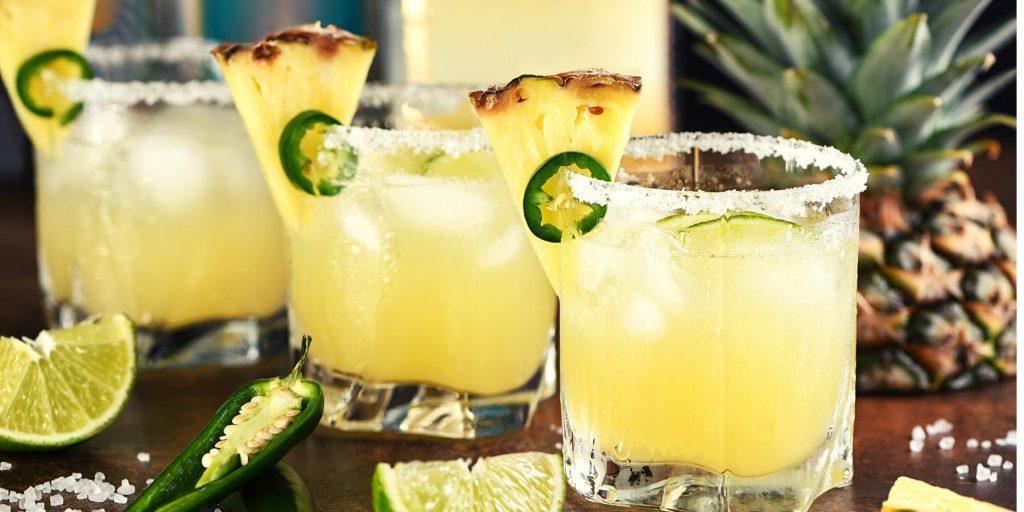
Choosing between tequila and mezcal comes down to the flavour you want in your cocktail. The smooth, slightly sweet profile of tequila makes it a natural fit for bright, citrusy drinks and easy-sipping classics. The bold, smoky depth of mezcal adds intrigue to spirit-forward serves and creative twists on familiar recipes. Whether you’re after something crisp and delightful or rich and complex, there’s a perfect cocktail for every mood.
Mezcal cocktails to try
London Fog
Mezcal Old Fashioned
Naked & Famous
Mezcal Margarita
Mezcal Paloma
Oaxacan Negroni
Tequila cocktails to try
Lime Margarita
Tequila Sunrise
Mexican Martini
Tequila Hot Chocolate
Paloma
Mexican Mule
Loved this article? Read these next…
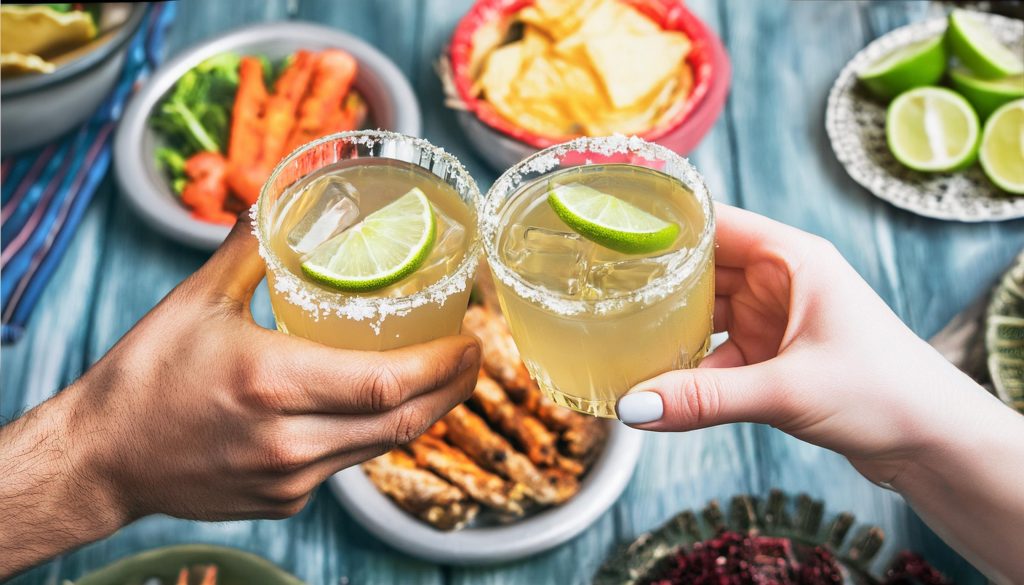
If you want to learn even more about Mexican spirits, and how to use them in gorgeous cocktail creations at home, the following articles will be right up your alley:
Warming Espolòn Tequila Cocktails for Cooler Weather
The Ultimate Guide to Delicious Reposado Tequila Cocktails
8 Must-Try Añejo Tequila Cocktails
There you have it folks, a nice concise look at mezcal vs. tequila and how to enjoy these two Mexican spirits. Visit the Montelobos and Espolòn websites to learn more, and remember to sign up for our newsletter for the tastiest drinkspiration.
